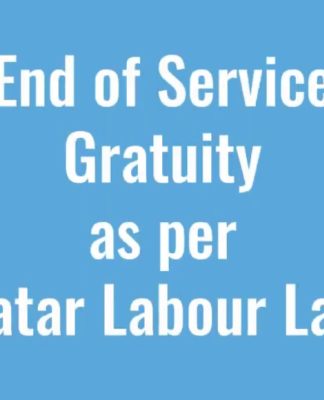The first rate will begin to apply from March 2021. The national minimum wage requirements incorporate a basic salary as well as accommodation allowance and food allowance where those allowances are not provided for. The current basic salary rate under the new national minimum wage law is QAR1,000 ($275) per month. Jan. 18, 2021
Qatar Labour Law and immigration: recent reforms
OUT-LAW ANALYSIS | 18 Jan 2021 | 10:07 am | 5 min. read
Qatar Labour Law and immigration: recent reforms
OUT-LAW ANALYSIS | 18 Jan 2021 | 10:07 am | 5 min. read
With diplomatic relations between Qatar and other countries in the Middle East improving, it is likely that there will be a more fluid movement of business – and personnel – in and out of the country. This makes it all the more important that employers understand the recent reforms to the Qatar immigration and labour laws.
Employment laws in Qatar were amended in 2020. The changes impose new requirements on employers and provide enhanced rights to workers. The reforms entailed amendments to the Qatar Labour Law, including provisions regarding the termination of employment contracts and the use of restrictive covenants.
Two new pieces of legislation directly connected with the employment relationship were also introduced. The first concerns the introduction of new national minimum wage requirements. These take effect in March 2021. The second concerns the ease with which foreign workers can move between employers in Qatar, and with this, the effective abolishment of the ‘no objection certificate’ once central to the ‘Kafala’ sponsorship system.

Luke Tapp
Partner
Employers will want to review and update their employment contracts and policies to ensure that they are compliant with the law and remain competitive in the marketplace
Qatar Labour Law reforms
The Qatar Labour Law (Law No. 14/2004) was amended by Law No. 18/2020. The changes took effect on 9 September 2020.
Notice periods – probationary period
Previously, employers could terminate the employment of workers serving a probationary period with just three days’ notice. Now employers are obliged to provide for a minimum notice period of one month.
The law now enables employees to terminate their employment during the probationary period provided the following conditions are adhered to:
- One month’s notice must be given by employees if they intend to move to a new employer within Qatar, and the new employer must compensate the old employer a portion of recruitment fees and the air ticket, capped at two months’ of the employee’s basic wage.
- A two month notice period applies to workers serving a probationary period if the employee intends to leave the country.
Employers and employees who fail to meet their notice requirements will be liable to pay compensation equivalent to the worker’s basic wage for the notice period or the remaining part of the notice period to be served, while a foreign worker who leaves the country without honouring the notice period could be issued with a potential one year labour ban in Qatar.
Notice periods – outside of probation
Previously employees with less than five years’ service were entitled to a statutory minimum notice period of one month in relation to the termination of their employment contract, while a minimum two month notice period applied to employees with a longer service. The same applied in the reverse situation where employees wished to terminate their employment contracts with their employer.
Under the new regime, the minimum notice period of one month applies in the case of employees who are in their first two years of service, with two months’ notice applicable in cases where employees have longer service.
Like with the notice requirements under the probationary period, employers and employees who fail to meet their notice requirements will be liable to pay compensation equivalent to the worker’s basic wage for the notice period or the remaining part of the notice period to be served, while a foreign worker who leaves the country without honouring the notice period could be issued with a potential one year labour ban in Qatar.
Restrictive covenants
A restrictive covenant is typically a clause in a contract which prohibits an employee from competing with his ex-employer for a certain period after the employee has left the business, or prevents the ex-employee from soliciting or dealing with customers of the business by using knowledge of those customers gained during his prior employment.
Employers were previously able to include ‘non-compete’ clauses in employment contracts that could last a maximum of two years following termination. However, the permissible length of non-compete clauses has now been reduced to one year.
Redundancy
“Redundancy” as a concept has been introduced into the Qatar Labour Law permitting valid employee dismissals by reason of “economic, structural or other reasons that are not related to the employment contact”.
In advance of effecting any redundancy dismissals the employer must inform the Ministry of Administrative Development, Labour and Social Affairs (MADLSA) at least 15 days prior to the dismissal and provide the MADLSA with a written statement of the reasons for the termination, the number and categories of workers likely to be affected, and the period over which the termination(s) are likely to be carried out.
This reporting obligation to the MADLSA is in addition to the employer’s duty to serve the employee with contractual notice of termination.
Penalties
The amended law also now provides for stiffer penalties for those who breach the Labour Law.
The possible penalties differ depending on the provisions that are breached. Fines that can be imposed could range from QAR2,000 ($549) to QAR100,000 ($27,463), with a doubling of the fines possible for a repeat offence. Imprisonment of up to one year could also be imposed in some cases.
National minimum wage laws
On 8 September 2020 a new law introducing the right to a new national minimum wage for all private sector workers took effect, updating the relevant parts of the Qatar Labour Law that previously applied. The rate is subject to annual ministerial review, with input to the review to be provided by a Minimum Wage Commission. The first rate will begin to apply from March 2021.
The national minimum wage requirements incorporate a basic salary as well as accommodation allowance and food allowance where those allowances are not provided for.
The current basic salary rate under the new national minimum wage law is QAR1,000 ($275) per month.
Where applicable, the minimum accommodation allowance to be provided is QAR500 ($137) per month, and the minimum food allowance is QAR300 ($82) per month.
Employers must adjust wages paid to workers in the event that they fall below the minimum rates, and must reimburse employees who are not paid a fixed wage in cases where the aggregate rate of what they earn monthly is inferior to the minimum wage prescribed.
Immigration
Decree-Law No. 19 of 2020 also introduced changes to the Qatar Labour Law and Law No. 21 of 2015 regulating the entry and exit of expatriates and their residence. It took effect on 9 September 2020.
The changes protect rights of both employers and employees and make it easier for employees to move to new employers.
Under the previous provisions, non-Qatari citizens required a ‘No-Objection Certificate’ (NOC) to be able to transfer to a new employer. The NOC had been a key component of Qatar’s Kafala framework applicable to foreign workers. Non-Qatari citizens also required an exit permit in order to take up a new job in another country.
Under the revised framework, non-Qatari citizens no longer need a NOC to change employers. They must only ensure compliance with the requirements around notice periods provided for under the Labour Law. In addition, an exit permit is no longer required when moving to a new job in another country.
Actions for employers
In light of these changes, employers will want to review and update their employment contracts and policies to ensure that they are compliant with the law and remain competitive in the marketplace.
Co-written by Ruth Stephen of Pinsent Masons.






























